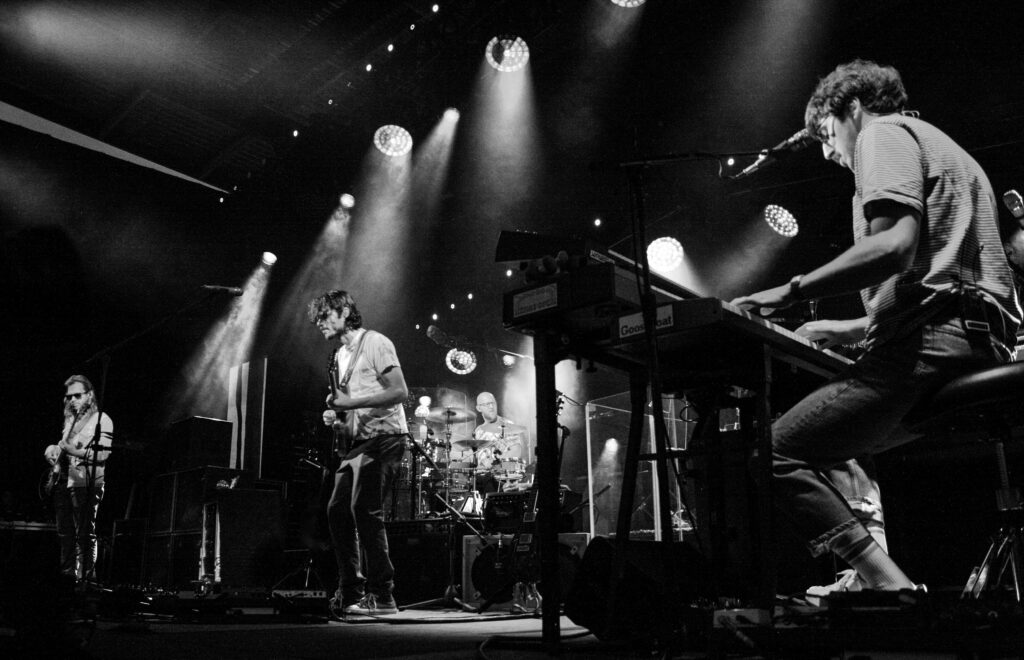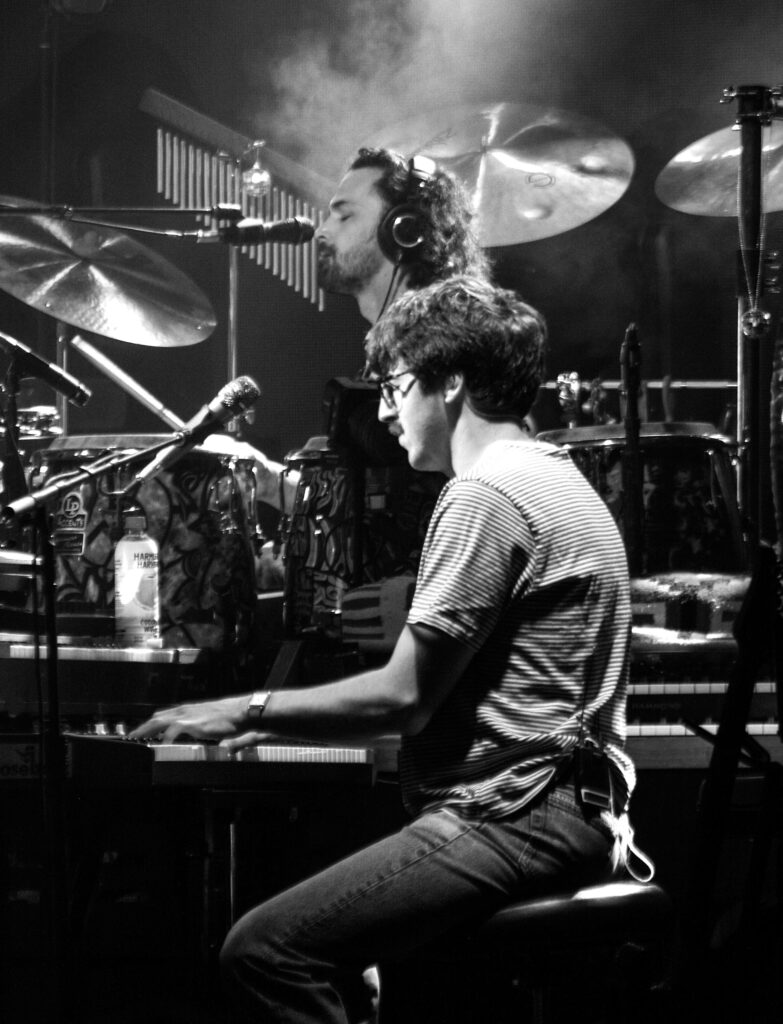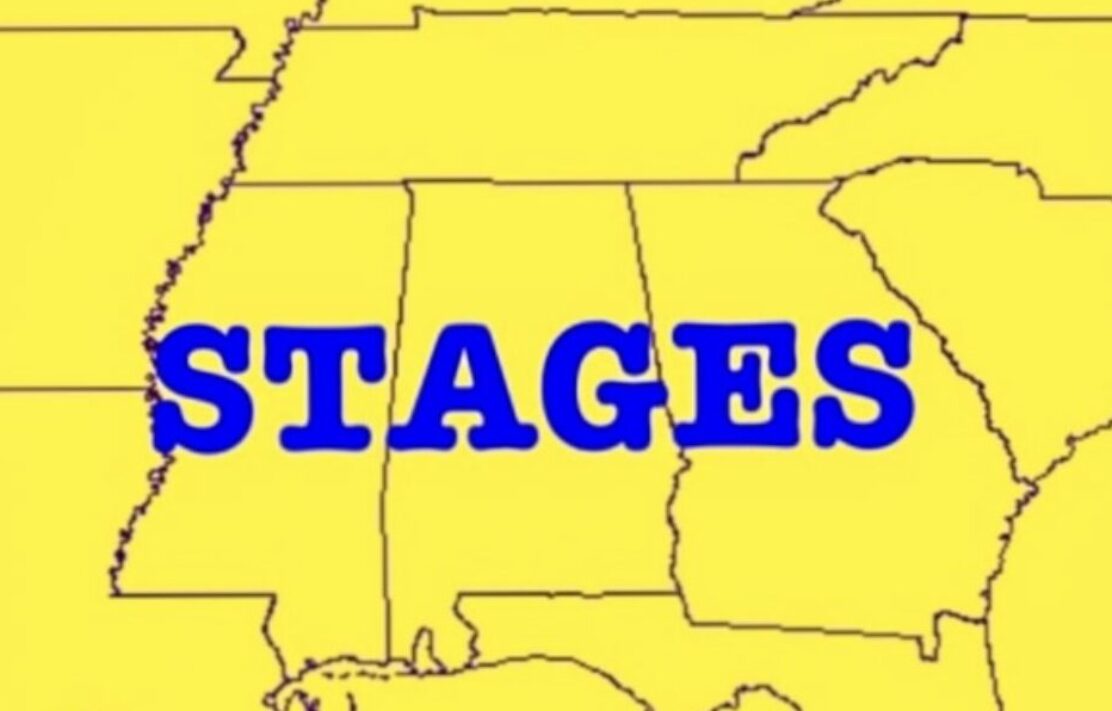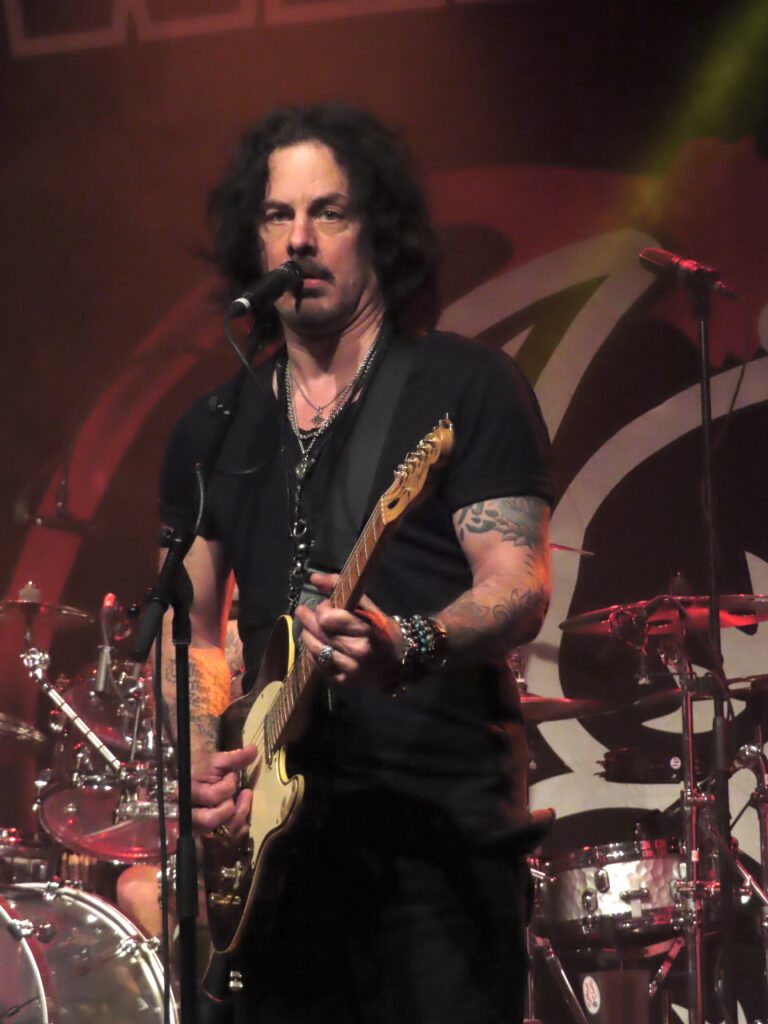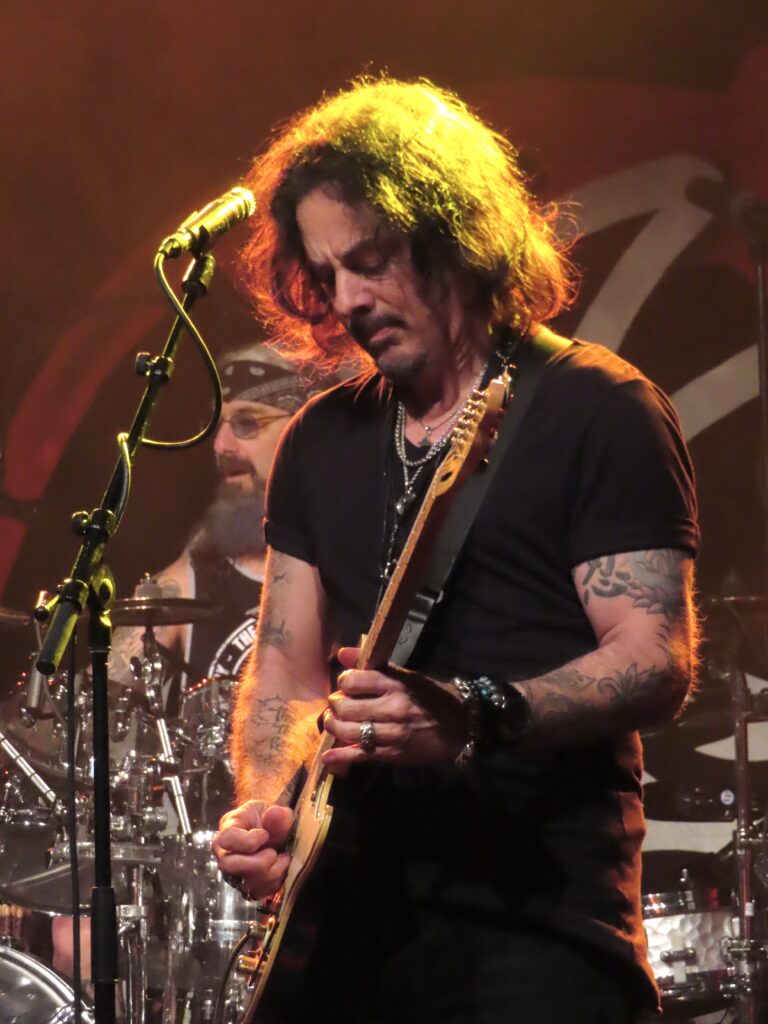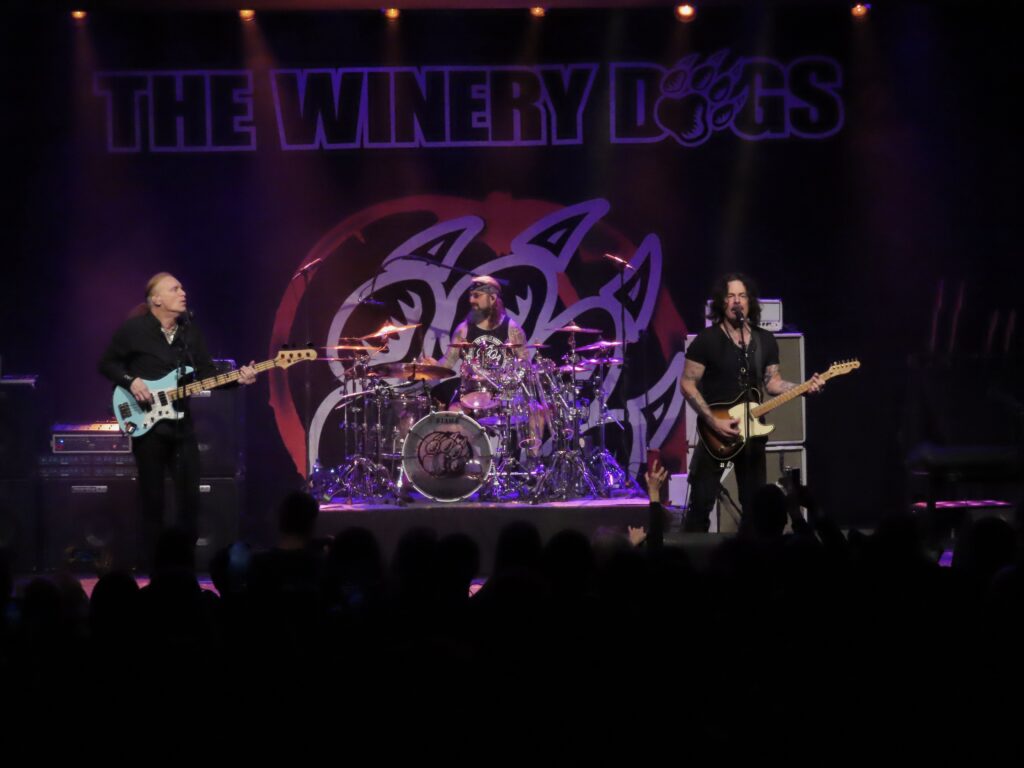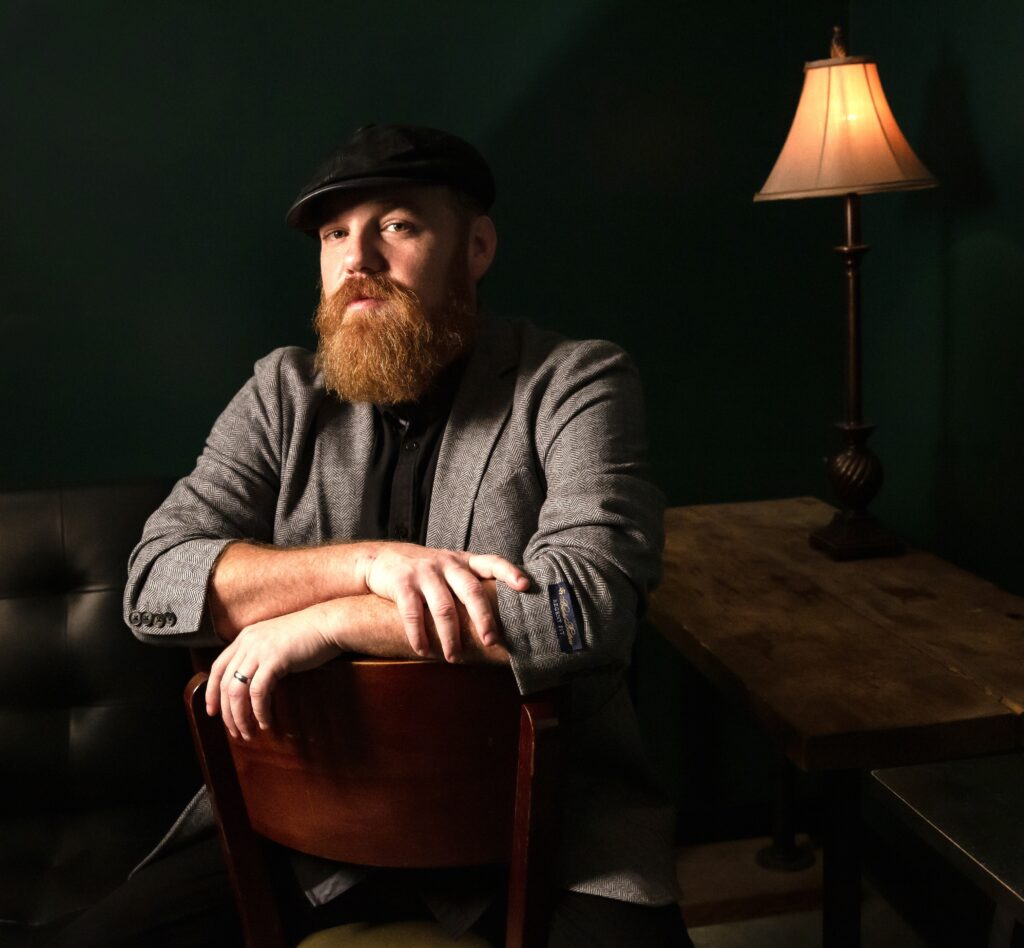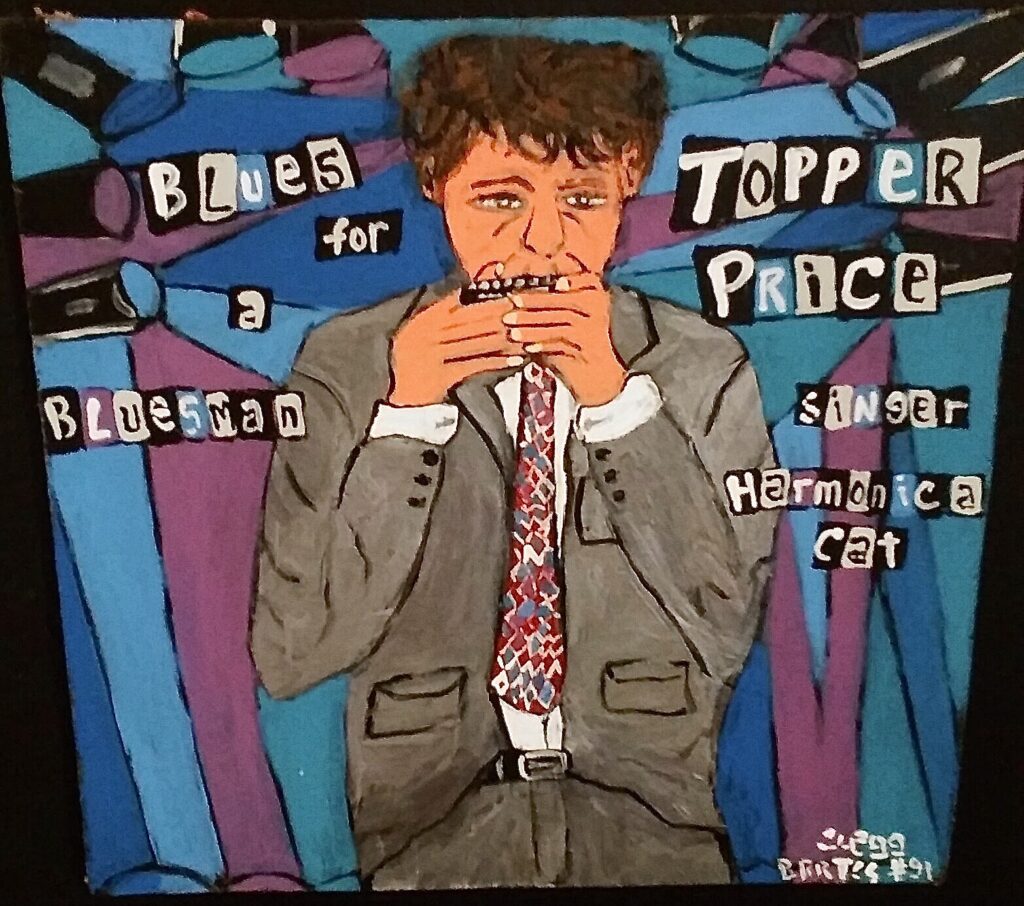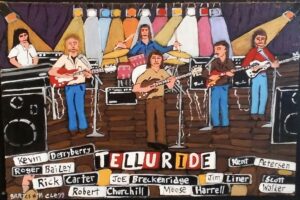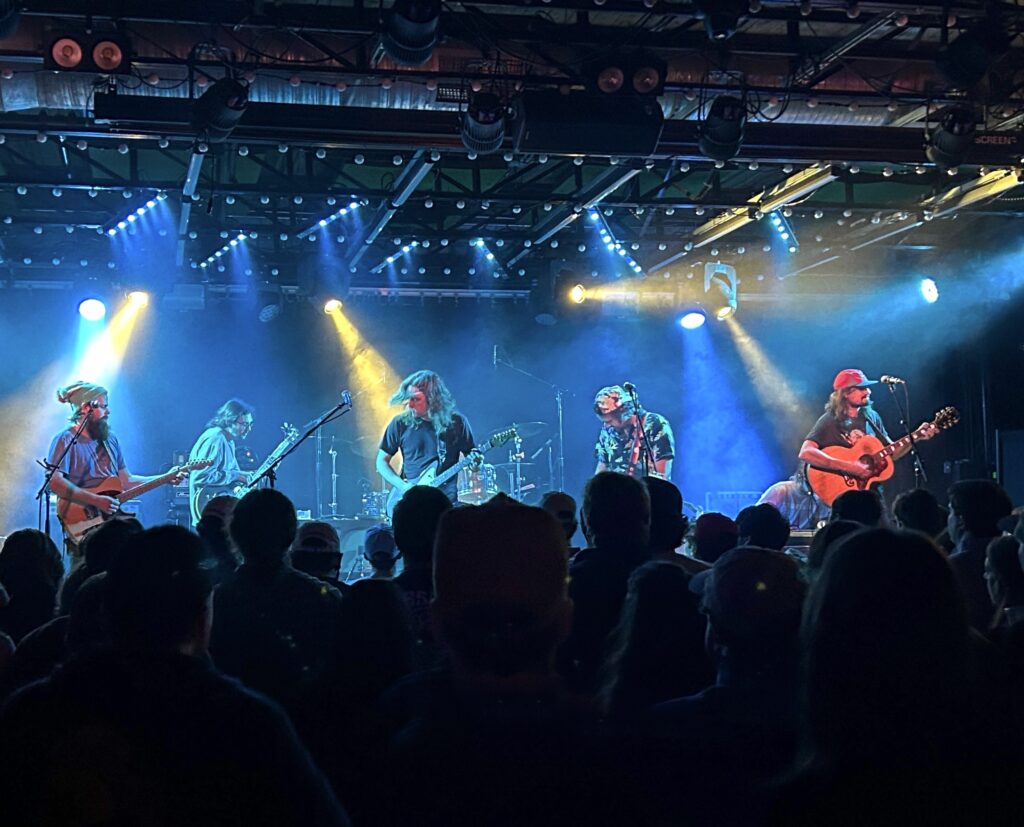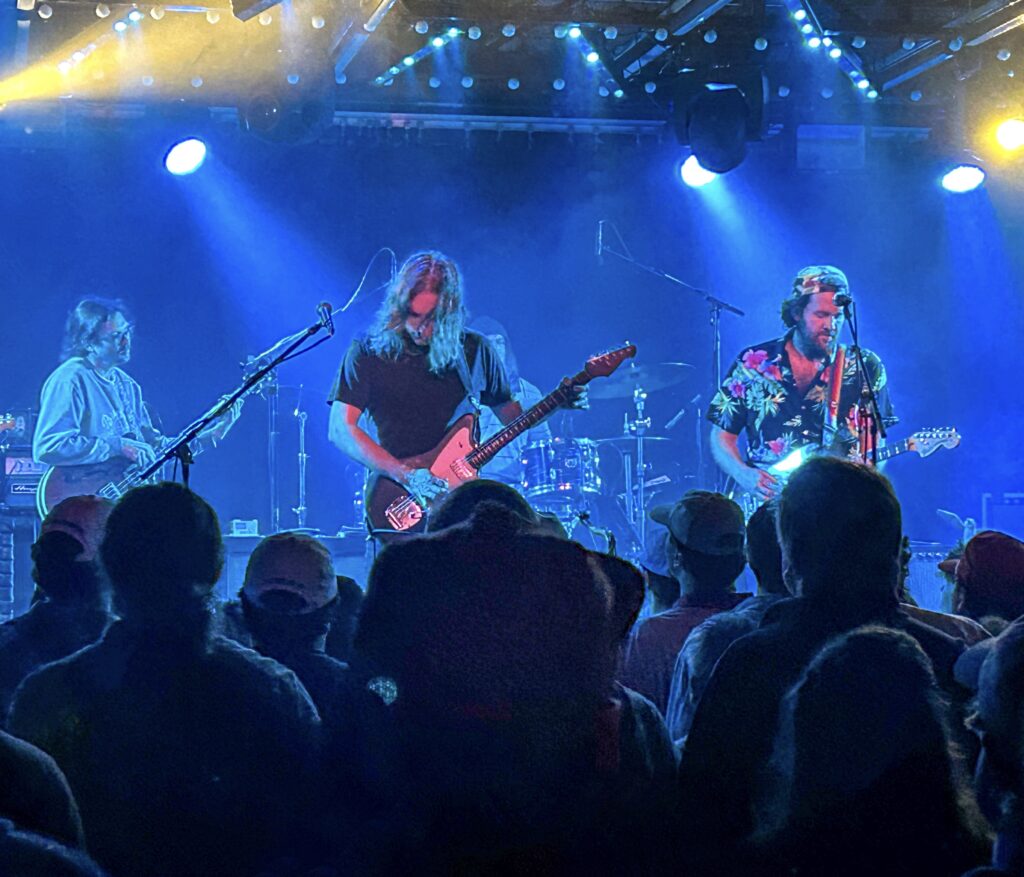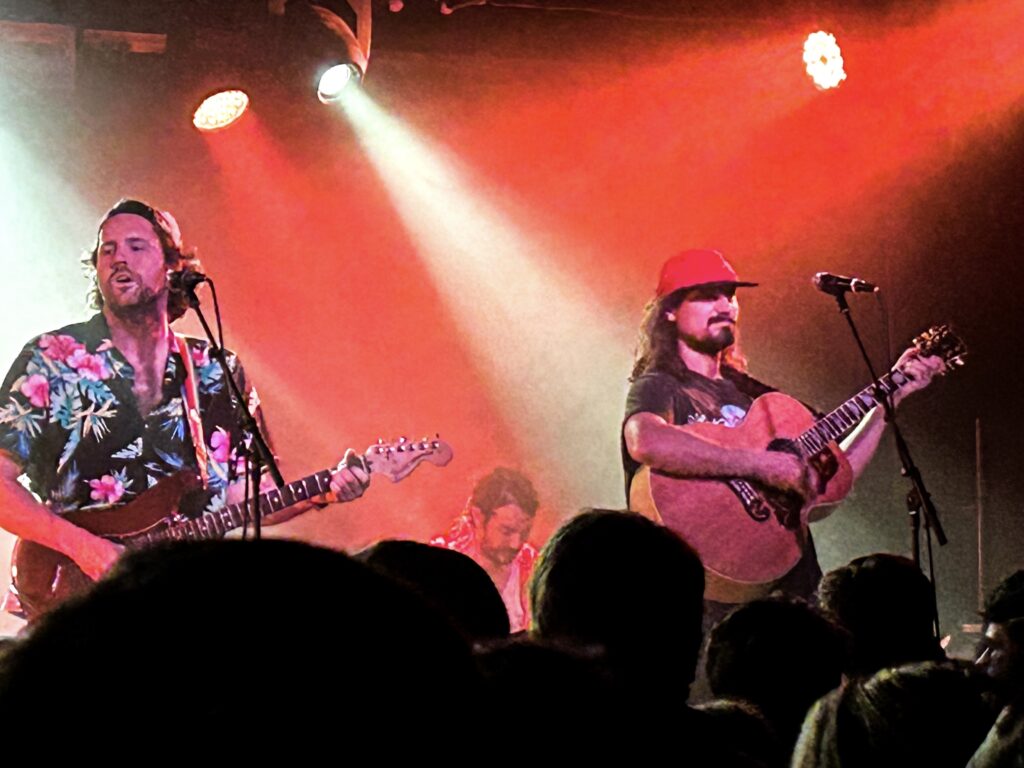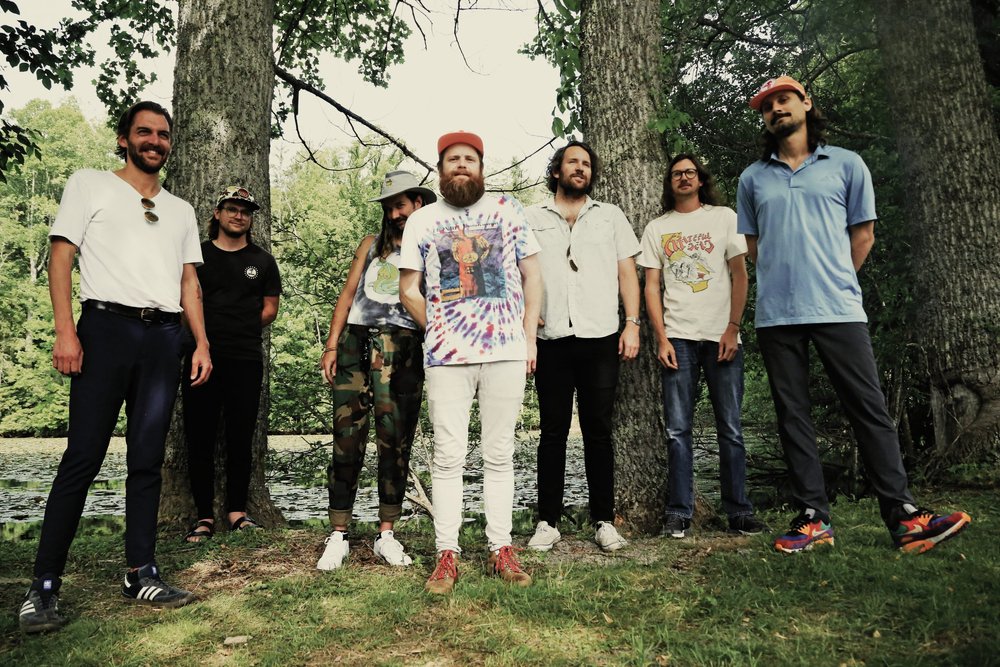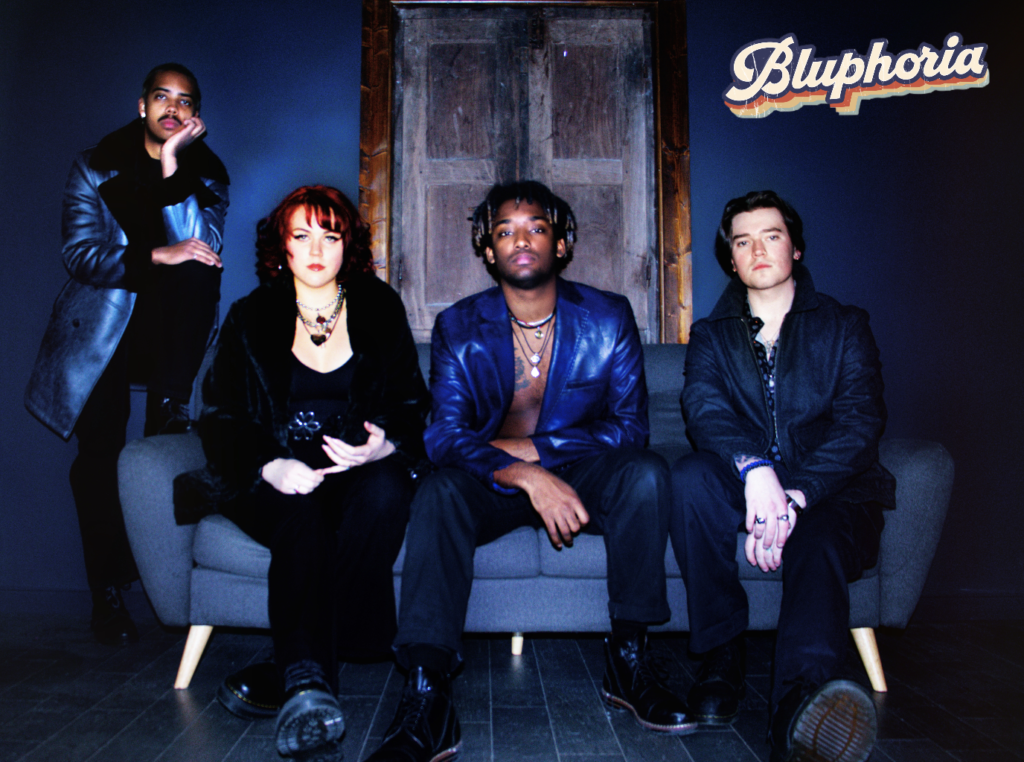By Brent Thompson

Photo Credit: Alysse Gafkjen
Guster has built a devoted following in a recording career spanning nearly 30 years. Band members Brian Rosenworcel, Ryan Miller and Adam Gardner met as freshmen at Boston’s Tufts University in 1991 and Luke Reynolds joined the fold in 2010. In addition to a steady stream of releases, tours and multiple television and film placements, the band is also known for its activist endeavors. On Tuesday, March 21, Guster will perform at the Lyric Theatre in a show presented by Code-R Productions. Recently, Rosenworcel spoke with us by phone as the band prepared to embark on its current tour.
Southern Stages: Brian, thanks for your time. Where are you right now?
Brian Rosenworcel: I’m home in Brooklyn, New York and the tour starts outside of Austin at Willie Nelson’s Luck Festival. We just got added to that, so we are starting there on March 16th and we’ll be up your way about a week later.
Southern Stages: Where are the band members based these days?
Rosenworcel: We’re spread out – I’m the only New Yorker. We met at college in Boston and spent eight years growing the band there, so we call ourselves a Boston band but though no one lives there anymore. The other guys are up in Vermont and Maine.
Southern Stages: With members living in different states, how does the tour rehearsal process work for Guster?
Rosenworcel: We are definitely at a stage in our career where we could show up, walk on stage and hit it out of the park. We know these songs and every night people in the crowd are disappointed we didn’t play their song. But we like to get together and add new material – maybe a cover – so it’s more interesting not just for them but for us. It remains to be seen how much prep we do for this run – this is just three weeks and it’s mostly focused on the South where we rarely focus.
Southern Stages: With a large catalog of material under your belt, how does the band comprise its set lists these days?
Rosenworcel: I’m the guy for this and it depends on the venue. If people are sitting down, that might take you one way. If it’s Friday night in a rock club, it might go in another direction. We have a lot of flexibility and versatility in what we can do, but the main thing I do is I look at what we played the last time we were in town. With us, it’s a lot of the same people coming out from the last time so I like to provide a totally different set list. If we play two nights somewhere, we don’t repeat a song. There are so many songs and they’re all pretty good – if we substitute one for another, then the night doesn’t suffer.
Southern Stages: How would you describe the band’s writing process? Is there a typical format or is it done on a song-by-song basis?
Rosenworcel: It definitely changes song-to-song with us and it always has. We have to deliberately get together for three days up at my friend’s place in Maine and jam. In those sessions, we’ll end up with a bunch of ideas we are excited about and then we’ll go home and put a melody on top of this or a lyric on top of that – whatever’s missing. They generally start from the band in the room, but sometimes Ryan will send in an idea – he’s our main melody guy and melody is our number one focus. It can be any direction – lyrics are always last. We are at a point where we’ve recorded enough over the pandemic period and honing in on an album and that’s exciting to us.
Southern Stages: When do you anticipate the next album will be released?
Rosenworcel: I think this year we’ll have new music. We have to get on the same page about which songs people are most excited about. If we don’t see eye-to-eye there, we’ve got to figure it out but usually we end up seeing eye-to-eye – the cream rises to the top. We’re in that stage now and that’s exciting. It’s been a fragmented process of recording – when we first started it was 2020 and Luke wasn’t comfortable getting into the studio with us right in the throws of Covid. We did a whole second batch just now and it came out really good, so we are excited to start introducing some of this to people.
Southern Stages: Some artists say this is a great time to be in your position given the easy access to listeners via Spotify, YouTube, satellite radio and other outlets. Others say the current climate fosters clutter and over-situation. How do you feel about the state of the industry?
Rosenworcel: This dates back to Napster and we were there when it pivoted from a record industry that sold physical albums to an Internet that was able to provide wider access. I don’t know how many hundreds of thousands of album sales we missed out on because of Napster, but we never really saw it that way. We always thought, “There’s now all these people that know our music who maybe otherwise wouldn’t and they might come to a show.” We never made any money from album sales and we were always in debt to our record company, so people that stole our music really didn’t affect our bottom line. So, we may as well have more people hearing our songs. We’ve always been focused on exposure, exposure, exposure. In the last few years when the live music industry was temporarily hit, that was a shock to our system because we didn’t have a recording business to fall back on. It’s good to be back out there and see people are still coming to shows. You can’t replace the feeling of being in the room.
Southern Stages: As a drummer, are you a “gear head”? Do you comb music stores while you are on tour?
Rosenworcel: I’m like the opposite of that [laughs]. In the studio, if I have an idea I’m just as likely to enjoy playing it on my suitcase or a drum. If it sounds unconventional or weird, that appeals to me more. I’m not super technical – I’m more creative.
Code-R Productions presents Guster with special guest Nicole Atkins at the Lyric Theatre on Tuesday, March 21. Tickets to the 7:30 p.m. show are $28.50-$33.50 and can be purchased at www.lyricbham.com.

